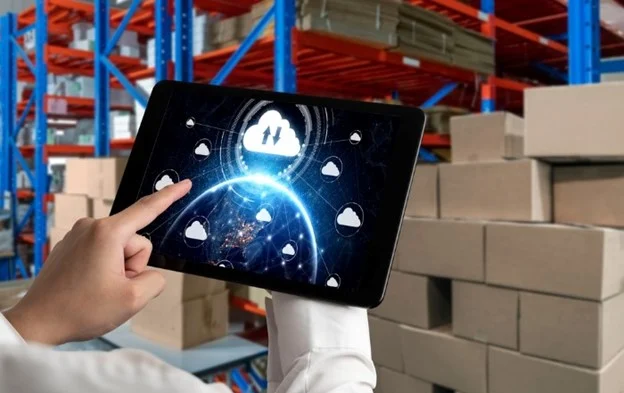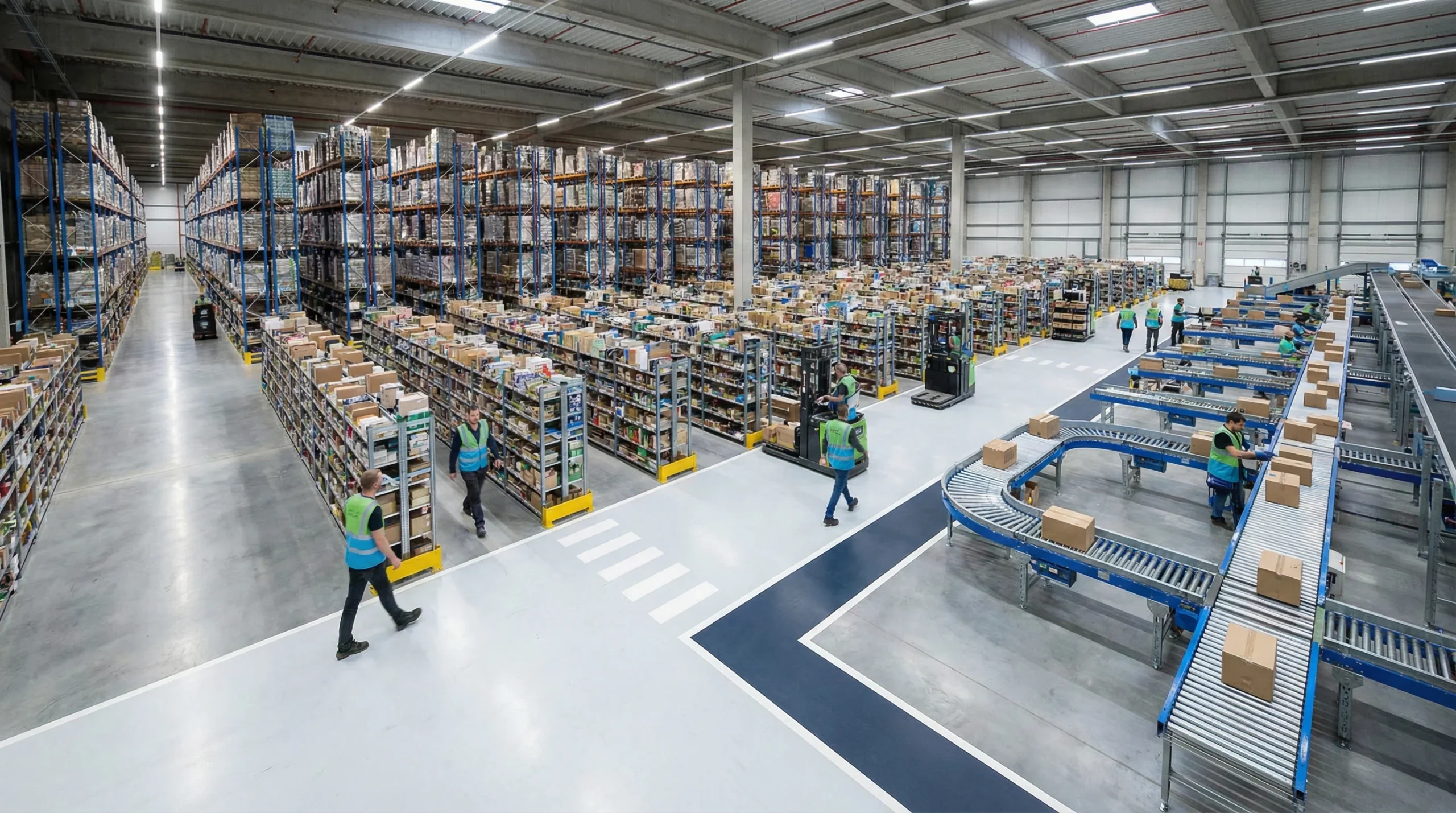Third-party logistics providers (3PL) play a crucial role in the success of eCommerce businesses. As online stores continue to grow and customer demand increases, 3PL providers need to adapt and streamline their logistics operations. One effective way to achieve this is through eCommerce platform integration with Warehouse Management Systems (WMS). In this article, we will discuss the benefits and best practices for 3PL eCommerce platform integration, aimed at improving logistics operations and meeting the needs of eCommerce businesses.
Benefits of WMS-eCommerce Integration for 3PL Warehouses
In this section, we’ll explore the various benefits that arise from integrating a WMS with online store platforms, highlighting how this powerful combination can elevate 3PL warehouse operations and contribute to eCommerce success.
Improved Inventory Management and Visibility
By connecting a WMS to top e-commerce platforms, 3PL providers gain the ability to monitor inventory levels across various online stores in real-time. This connection empowers eCommerce businesses to manage their stock effectively, minimizing the risks of stockouts and overstocking. Efficient inventory control and management is crucial in the fast-paced world of e-commerce, as it ensures businesses can meet customer demand and maintain satisfaction.
Streamlined Order Management and Fulfillment
E-commerce integration with a WMS automates order management, processing, and fulfillment, making it easier for 3PL providers to meet customer demand. This streamlined process reduces the time spent on manual tasks and allows 3PL providers to focus on other aspects of their business. Integrating order management software with your WMS can further optimize order processing workflows, ensuring that customer orders are fulfilled quickly and accurately.
Enhanced Customer Experience
Merging your WMS with e-commerce platforms allows 3PL providers to offer advanced features such as real-time shipment tracking and automatic label printing, elevating the overall customer experience. Integration also leads to quicker shipping times and improved communication with customers. Of course, delivering outstanding customer service is essential for eCommerce businesses looking to stand out from competitors and cultivate a loyal customer base.
Scalability and Flexibility
Connecting your warehouse management system with different e-commerce platforms allows 3PL providers to expand their business and serve a broader range of eCommerce brands. This scalability enables them to adapt their logistical infrastructure to the changing needs of the online retail industry. WMS-eCommerce integration also supports small businesses, helping them grow and compete in the market.
Improved Billing and Reporting
WMS-eCommerce integration allows for more accurate and efficient billing processes, as well as comprehensive reporting. Billing software can be integrated into the system, enabling 3PL providers to automate invoicing and ensure that they are accurately charging clients for their services. Additionally, eCommerce integrations provide valuable data that can be used to generate insightful reports, helping 3PL providers make data-driven decisions and optimize their operations.
Enhanced Supply Chain Management
Combining WMS with e-commerce platforms bolsters supply chain management by offering real-time insights into inventory levels, order statuses, and shipping details. This transparency enables 3PL providers to manage their resources and plan operations more effectively, ultimately enhancing efficiency and reducing costs.

Best Practices for WMS-eCommerce Integration
In this section, we’ll outline key best practices for effectively integrating WMS and online store platforms. These insights will help ensure a seamless connection between the two systems, leading to optimized operations and enhanced efficiency for e-commerce fulfillment warehouses.
Selecting the Right eCommerce Platform
Choosing the right e-commerce platform is crucial for seamless integration with your WMS. Consider compatibility with your existing WMS, as well as the platform’s scalability and customization options. Popular e-commerce platforms, such as Shopify, WooCommerce, and Magento, offer robust APIs and third-party integrations that can facilitate seamless WMS-eCommerce integration.
Ensuring Data Consistency
Data consistency is essential for maintaining accurate inventory records and smooth order fulfillment. Regularly synchronize product data between your WMS and e-commerce platforms, and conduct data audits and cleanup to maintain data consistency. Implementing electronic data interchange (EDI) can further streamline data exchange and ensure that information is accurate and up-to-date across all systems.
Implementing a Centralized Order Management System
A centralized order management system consolidates orders from various sales channels, simplifying order processing and tracking. This system helps streamline the order processing workflow and improve logistics operations efficiency. By integrating order management software with your WMS, you can ensure that all customer orders are processed accurately and efficiently, regardless of the sales channel they originate from.
Utilizing Mobile Barcode Devices
Mobile barcode devices, such as scanners and printers, can automate inventory tracking and reduce human errors during the order fulfillment process. These devices are essential for improving logistics operations in 3PL warehouses. Investing in mobile barcode scanners and other mobile devices can help your team work more efficiently, speeding up the order fulfillment process and reducing errors.
Connecting Application Programming Interfaces (APIs)
APIs enable seamless communication and data exchange between WMS and e-commerce platforms. Connecting APIs ensures real-time updates and a smooth integration process. Proper API integration also facilitates direct access to essential data, such as inventory levels and order statuses, helping 3PL providers make informed decisions and respond to customer demands quickly.
Implementing Security Measures
Ensuring the security of your WMS-eCommerce integration is crucial to protect sensitive business and customer data. Implement reliable security upgrades and adhere to industry best practices to safeguard your systems from potential threats. Regular security audits and vulnerability assessments can help identify and address potential risks.

Overcoming Common Challenges in WMS-eCommerce Integration
In this section, we’ll address common challenges that may arise while integrating your WMS with online shopping platforms and provide guidance on how to overcome them. By successfully navigating these challenges, 3PL warehouses can optimize their logistics operations and enhance their partnerships with e-commerce companies.
Customizing eCommerce Solutions for Specific Business Needs
Every eCommerce business has unique requirements, and a one-size-fits-all solution may not always be the best fit. When integrating a WMS with a particular platform, it is essential to consider the specific needs of the e-commerce company you are partnering with. Customizable eCommerce solutions can be tailored to address these unique requirements, ensuring seamless integration and improved overall efficiency.
Managing Cross-Channel eCommerce
Today’s e-commerce businesses often sell their products on multiple channels, such as online marketplaces and social media platforms. Managing inventory, orders, and fulfillment across these channels can be challenging. Integrating a WMS with cross-channel e-commerce solutions enables 3PL warehouses to centralize and streamline their operations, ensuring accurate inventory management and timely order fulfillment across all sales channels.
Shipping API Integration
Integrating shipping APIs with your WMS can further enhance your logistics operations by automating shipping rate calculations, label generation, and carrier selection. Shipping API integration also ensures that your 3PL warehouse stays up-to-date with the latest carrier services, rates, and shipping rules, helping you provide the best shipping options to your eCommerce partners.
Optimal Distribution Network Management
Effective distribution network management is crucial for 3PL warehouses to ensure that products reach customers quickly and cost-effectively. Integrating your WMS with e-commerce platforms enables real-time visibility into your distribution network, helping you make data-driven decisions and optimize your logistics operations. This visibility ensures timely deliveries and allows you to respond quickly to fluctuations in demand.
SphereWMS: Your Partner in WMS-eCommerce Integration
At SphereWMS, we recognize the significance of a seamless WMS-eCommerce integration for 3PL warehouses. Our advanced warehouse management solution is tailored to support integration with key e-commerce platforms, guaranteeing smooth and efficient logistics operations.
Our scalable solution features an intuitive admin interface that allows users to easily manage inventory, orders, and other critical business processes. Compatibility with leading shopping carts and popular eCommerce platforms ensures a hassle-free integration between your WMS and online store.
Moreover, our team of experts is dedicated to helping you successfully implement and maintain your eCommerce integration. With continuous support and assistance, we make certain that your systems remain up-to-date and optimized for peak efficiency.
3pl E-Commerce Platform Integration: Conclusion
Integrating WMS with eCommerce platforms is vital for 3PL warehouses to remain competitive and cater to the dynamic needs of eCommerce businesses. By adhering to best practices and employing effective strategies, warehouse professionals can achieve seamless integration, optimized logistics operations, and enhanced customer satisfaction.
Investing in a reliable WMS-eCommerce integration solution, such as SphereWMS, is key to the long-term success of your 3PL warehouse. Our customizable software solutions, smooth integration capabilities, and unwavering support ensure that you stay ahead of the competition and adapt to the ever-evolving eCommerce landscape.
Contact us and learn more about our WMS-eCommerce integration solutions today.
FAQs
What are some popular e-commerce platforms that can be integrated with a WMS?
Some popular e-commerce platforms that can be integrated with a WMS include Shopify, WooCommerce, Magento, and BigCommerce. These platforms offer robust APIs and third-party integration options, making it easy to connect them with your WMS.
How can third-party logistics providers maintain their competitive edge in the market?
3PL warehouses can maintain a competitive edge by staying up-to-date with the latest technological advancements, such as WMS-eCommerce integration, mobile barcode devices, and AI-based tools. Additionally, they should focus on providing excellent customer service, maintaining accurate inventory management, and continuously improving their logistics operations.
What is the role of APIs in WMS-eCommerce integration?
APIs (Application Programming Interfaces) enable the communication and exchange of data between the WMS and e-commerce platforms, allowing for seamless integration and real-time updates between the two systems.
Can WMS-eCommerce integration support multiple warehouses?
Yes, integrating WMS with e-commerce platforms can support multi-warehouse operations, providing centralized inventory and order management across all warehouse locations.
How does WMS-eCommerce integration help in managing returns?
The integration allows for efficient return processing by automating the receipt of returned items, updating inventory levels, and streamlining the refund or exchange process for customers.
Is WMS-eCommerce integration suitable for small and medium-sized 3PL warehouses?
Yes, WMS-eCommerce integration can benefit small and medium-sized 3PL warehouses by improving efficiency, reducing manual labor, and enhancing their ability to scale and adapt to changing market demands.
How does WMS-eCommerce integration support omnichannel retail strategies?
The integration enables centralized management of inventory and orders across multiple sales channels, allowing 3PL warehouses to efficiently support the fulfillment requirements of an omnichannel retail strategy.
How long does it take to implement WMS-eCommerce integration?
The implementation timeline can vary depending on factors such as the complexity of the systems, compatibility, customization requirements, and the level of technical expertise available. It’s essential to work closely with your WMS and eCommerce platform providers to ensure a smooth and timely integration process.
What are the key performance indicators (KPIs) to monitor for WMS-eCommerce integration?
Key performance indicators include inventory accuracy, order processing speed, order error rate, return rate, shipping time, and customer satisfaction. Monitoring these KPIs can help identify areas for improvement and optimize your WMS-eCommerce integration.




